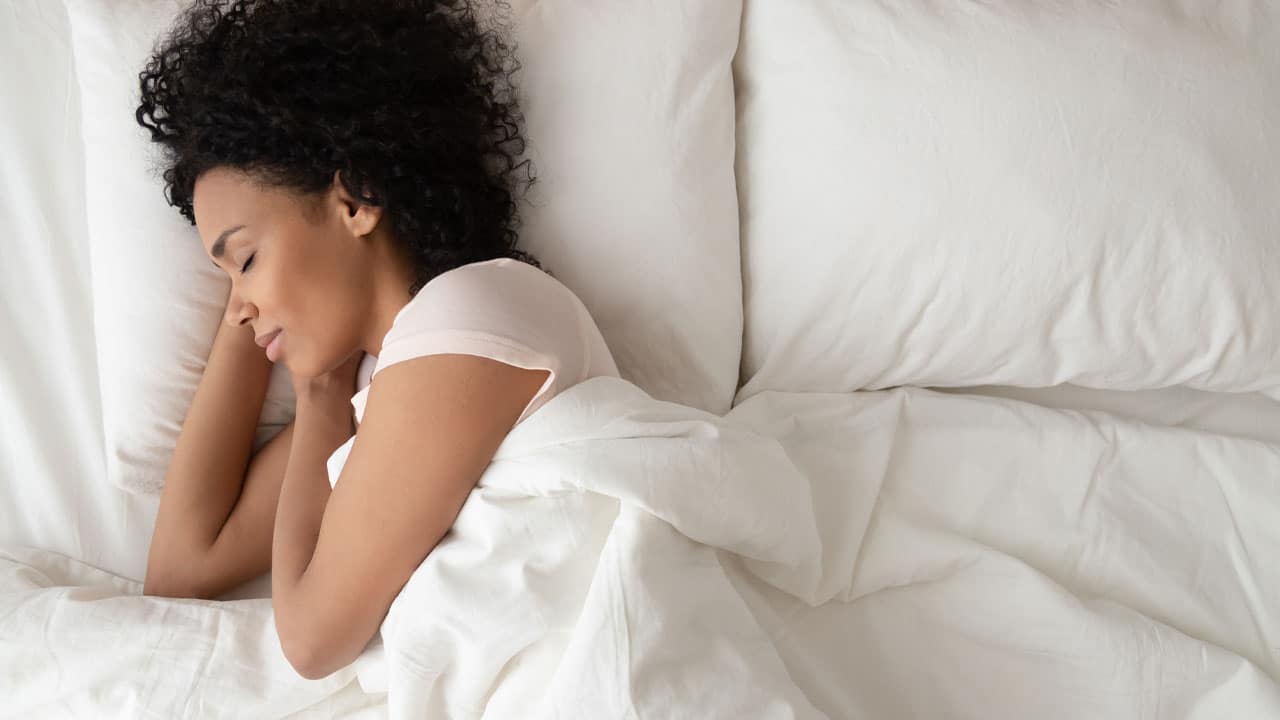
Sleep apnea is a condition that affects an estimated 25 million Americans, making it the most-commonly diagnosed sleep-related breathing disorder. It occurs when a person’s breathing is interrupted during sleep, causing a deterioration in sleep quality and reduced blood oxygen levels. This can lead to daytime fatigue and more severe medical issues, including hypertension and stroke.
While the adverse effects of sleep apnea on sleep quality and overall quality of life are well-documented, many people affected by sleep apnea fail to realize the condition can also worsen oral health.
What Is Sleep Apnea?
Sleep apnea is divided into two categories: obstructive and central.
Obstructive Sleep Apnea
Obstructive sleep apnea (OSA) occurs when the airway is repeatedly blocked during sleep, pausing breathing. These pauses can last a few seconds to minutes and happen dozens or hundreds of times during the night.The main symptoms of OSA are loud snoring and daytime fatigue. OSA can lead to serious health problems, including low blood oxygen concentration, hypertension, and coronary artery disease. OSA can also cause severe cognitive impairment due to poor sleep quality.
Central Sleep Apnea
Central sleep apnea is a less-common type of sleep apnea that occurs when the brain fails to send signals to the muscles that control breathing. When this happens, the patient fails to inhale, skipping breathing cycles. These pauses typically last between 10-30 seconds and often drop blood oxygen saturation.
Several factors, including comorbidities like cardiac arrhythmias and brain deficiencies, can cause
Central sleep apnea. Sleep apnea can occur in people of any age, but it is more common in overweight people or those with chronic nasal congestion.
How Sleep Apnea Affects Oral Health
The effects of sleep apnea on oral health vary widely among patients; however, several oral health conditions are associated with sleep apnea.
TMJ Disorders
TMJ disorders affect the functioning of the temporomandibular joint, the joint between the lower and upper jaw that allows movement for eating or speaking. TMJ disorders can cause jaw pain, difficulty eating, and a locked jaw.
While it is still unclear if TMJ disorders cause sleep apnea or vice-versa, there is evidence that TMJ disorders and sleep apnea are related. A 2013 study found that TMJ disorders were three times as frequent in people with OSA.
People with TMJ also struggle with brushing and flossing; TMJ can limit the range of movement in the jawbone, so patients struggle to access hard-to-reach areas, increasing their risk of decay.
Nocturnal Bruxism
Nocturnal bruxism is unconsciously grinding your teeth during sleep. Bruxism can reduce sleep quality and cause severe dental problems, like worn or broken teeth. Research indicates that bruxism is common in patients with sleep apnea and that successful sleep apnea treatment may reduce or eliminate incidences of nighttime bruxism.
Mouth Breathing
Patients with sleep apnea often breathe through their mouths during sleep. Mouth breathing and reduced saliva production at night can lead to dental issues like tooth decay, gingivitis, and periodontal disease.
Treating Sleep Apnea
Sleep apnea is a condition that can have severe consequences for both dental and general health if left untreated. Fortunately, there are effective treatments available.
Continuous Positive Airway Pressure (CPAP) machines pump air into your lungs while you sleep, keeping your airways open and allowing you to breathe more easily.
Other common and less invasive treatments include mouthguards to reposition the tongue during sleep and prevent bruxism and lifestyle changes like diet and exercise.
Maintain Your Oral Health With Smile On Chicago Dental Salon & Sleep Apnea Center
Sleep apnea can cause dental damage if left untreated, so a dentist needs to schedule a home sleep test to determine if you are at risk for dental issues.If you have sleep apnea, call Smile On Chicago Dental Salon & Sleep Apnea Center at (773) 525-5545 to schedule a consultation today to help preserve your smile and improve your overall well-being.
